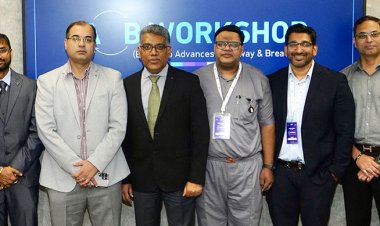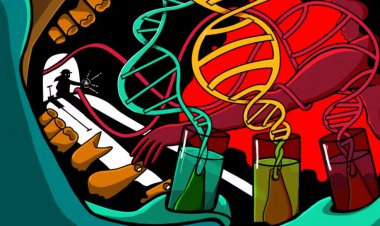CRISPR: A Gene-Editing Revolution with Ethical Thorns
Clustered Regularly Interspaced Short Palindromic Repeats, or CRISPR for short, has become a household name in the scientific community.

This powerful gene-editing tool has revolutionized the field of biotechnology, offering the potential to cure genetic diseases, engineer crops resistant to pests, and even eliminate harmful mosquitos. However, with such immense power comes a responsibility to navigate the ethical complexities and potential unintended consequences of this groundbreaking technology.
The Promise of CRISPR:
CRISPR works by precisely cutting DNA at a desired location, allowing scientists to insert, remove, or alter specific genes. This opens doors for a multitude of applications:
- Treating Genetic Diseases: CRISPR has the potential to cure a wide range of genetic disorders caused by a single faulty gene. Imagine correcting the mutation causing cystic fibrosis or sickle cell anemia, offering a healthier future for millions.
- Engineering Disease-Resistant Crops: By editing genes in crops, scientists can create varieties resistant to pests and diseases, leading to increased food security and reduced reliance on pesticides.
- Eliminating Mosquitoes: CRISPR can be used to edit the genes of mosquitos, making them resistant to the parasites that cause diseases like malaria and dengue fever. This could be a game-changer in the fight against these devastating illnesses.
The Ethical Quandaries:
The power of CRISPR raises a number of ethical concerns:
- Unintended Consequences: Editing the human genome is an irreversible process. Off-target effects, where unintended changes occur in the DNA, could have unforeseen consequences.
- Designer Babies: The ability to edit genes in embryos raises the specter of designer babies, where parents choose their children's traits. This could exacerbate social inequalities and raise questions about eugenics.
- Germline Editing: Editing genes in sperm or egg cells creates changes that can be passed on to future generations. The long-term effects of such alterations are unknown and require careful consideration.
Navigating the Future:
To ensure the responsible use of CRISPR, a global conversation is necessary. Scientists, ethicists, policymakers, and the public need to work together to develop clear guidelines and regulations for this powerful technology.
- Open Dialogue: Open and transparent discussions are crucial to address public concerns and ensure responsible development of CRISPR.
- International collaboration: International cooperation is essential to ensure ethical standards are applied globally.
- Public Education: Educating the public about CRISPR and its implications is vital to foster informed debate and decision-making.
CRISPR holds immense potential to improve lives and overcome some of humanity's biggest challenges. However, navigating the ethical minefield and ensuring its responsible use are critical to reaping the benefits of this revolutionary technology. By fostering open dialogue, international collaboration, and public education, we can ensure that CRISPR truly ushers in a brighter future for all.






















